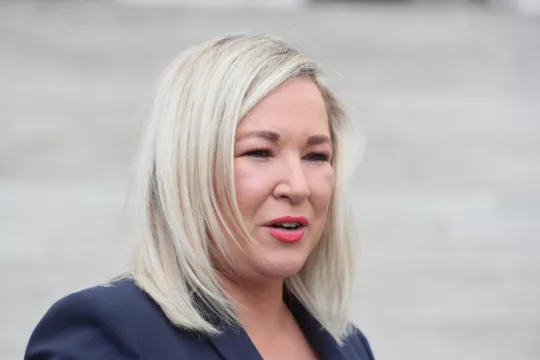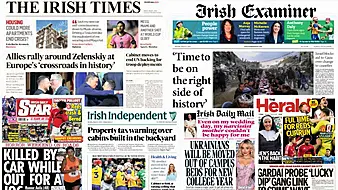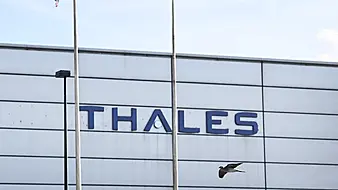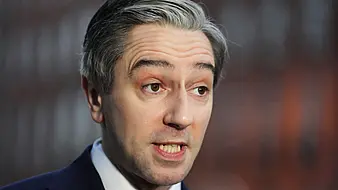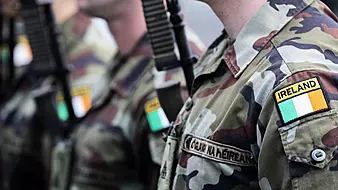Northern Ireland’s deputy First Minister has warned that a new process by the Irish and UK governments on legacy must not “rewrite” the Stormont House Agreement.
Foreign Affairs Minister Simon Coveney and UK Secretary of State Brandon Lewis announced on Thursday a new process to reach out to families of victims, political parties and other stakeholders to talk about the way forward.
Speaking following a meeting of the British-Irish intergovernmental conference in Dublin, Mr Coveney described the Stormont House Agreement as the “starting point for those discussions”.
Mr Lewis said the process will “build on and develop on the principle of the Stormont House Agreement”.
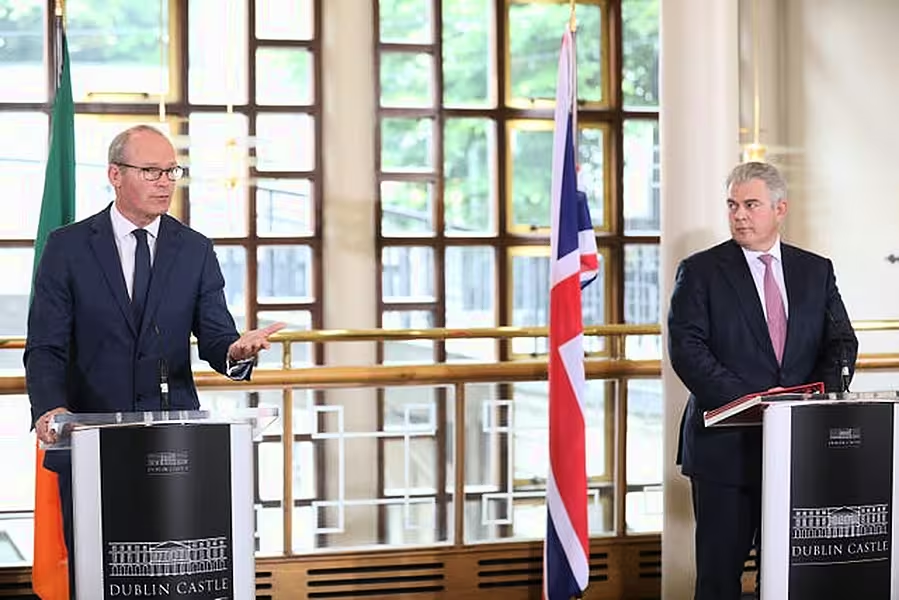
In 2014, the Stormont House Agreement proposed a Historical Investigations Unit to examine unsolved murders during the Troubles and an Independent Commission on Information Retrieval for families to learn more about the fate of their loved ones.
Deputy First Minister Michelle O’Neill warned the governments against “going around” that agreement.
“I think unfortunately the British government are hell-bent on ripping up the Stormont House Agreement and they are progressing another conversation around how to deal with the past whenever that was dealt with sufficiently back with the Stormont House Agreement which all parties and the two governments signed up to,” she said.
“What we need now is delivery upon what was agreed previously.
“There cannot be any rewriting of the Stormont House Agreement without the full support of all the parties and the support of both governments, so I very much will be looking towards the Irish Government to hold the British government’s feet to the fire around the fact that they can’t unilaterally take action and go right around the Stormont House Agreement.”
Northern Ireland's First Minister Paul Givan said: “We look forward to that engagement with the Secretary of State around these issues.
“They have been well documented now for many years and the party will be up for that continued engagement.”

Victims groups have said the process “must deliver”.
The WAVE Trauma Centre said it welcomes the announcement “as long as they are true to their word”.
The group said in a statement: “We have been promised engagement before. This time they need to honour their commitment. Victims and survivors cannot continue to be sidelined.”
Kenny Donaldson, spokesman for Innocent Victims United (IVU), urged against amnesties and said both the UK and Ireland must commit to disclose the “maximum information supported by resourcing packages”.
He also called for a formal acknowledgement process to be “front and centre”.
He added: “The UK and the Republic of Ireland plus terrorist organisations and their political annexes must collectively state that in the context of the Troubles there was no legitimacy for the use of criminal violence in the pursuance of or defence of a political objective.”

Mr Donaldson also called for the strengthening of laws around the glorification of terrorism.
“Any solution on legacy which fails to secure the support of the IVU constituency has no credibility,” he said.
“As the largest constituency of victims/survivors, IVU must not be ignored.
“The IVU family of groups will continue to campaign robustly on these matters, we have not put out the ‘white flag’, we will not allow those in positions of authority to be absolved from meeting their responsibilities, from doing what is right and just.”
